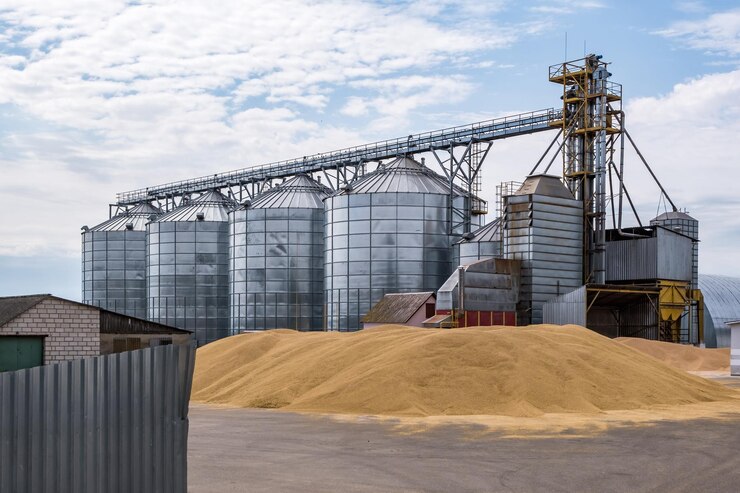Grain storage management systems play a crucial role in improving agricultural efficiency by ensuring the proper handling, storage, and preservation of grains. These systems utilize technology and various practices to monitor, control, and optimize grain storage conditions. Here are some key aspects of their role:
- Preservation of Grain Quality: Grain storage management systems help maintain the quality of harvested grains by creating optimal storage conditions. These systems monitor and regulate factors such as temperature, humidity, ventilation, and pest control. By preventing moisture accumulation, temperature fluctuations, and pest infestation, they reduce the risk of spoilage, mold growth, and insect damage, thereby preserving the quality and nutritional value of grains.
- Minimization of Post-Harvest Losses: Post-harvest losses, including physical losses, quality deterioration, and insect damage, can significantly impact agricultural efficiency. Grain storage management systems minimize these losses by implementing proper storage techniques and technologies. For example, using airtight silos or bins with appropriate sealing systems prevents the entry of oxygen and moisture, reducing the chances of spoilage and insect infestation.
- Enhanced Storage Capacity and Flexibility: Efficient grain storage management systems provide farmers with increased storage capacity and flexibility. They enable the storage of larger quantities of grains, allowing farmers to store surplus harvests and sell them when market conditions are favorable. This reduces the pressure to sell immediately after harvest, enabling farmers to achieve better prices and improve their overall profitability.
- Improved Inventory Management: Grain storage systems facilitate effective inventory management by providing accurate and real-time data on stored grain quantities and quality. Automated monitoring and tracking systems integrated with these management systems help farmers and storage operators keep track of inventory levels, anticipate market demands, and make informed decisions regarding grain sales and distribution.
- Cost Reduction and Financial Savings: By reducing post-harvest losses, grain storage management systems contribute to significant cost savings for farmers and the agricultural industry as a whole. Farmers can avoid financial losses resulting from spoilage, insect damage, and quality deterioration. Additionally, efficient inventory management allows for better planning and utilization of storage facilities, optimizing operational costs.
- Mitigation of Market Risks: Grain storage management systems enable farmers to store their grains and strategically time their sales to mitigate market risks. By having control over the timing of grain sales, farmers can avoid selling during periods of low prices and take advantage of favorable market conditions. This helps stabilize income, increase profitability, and reduce vulnerability to market fluctuations.
Grain storage management systems play a vital role in agricultural efficiency by preserving grain quality, minimizing post-harvest losses, increasing storage capacity and flexibility, improving inventory management, reducing costs, and mitigating market risks. By implementing these systems, farmers can optimize their operations, enhance profitability, and contribute to the overall sustainability of the agricultural supply chain.
Join 'Farmers Mag' WhatsApp Channel
Get the latest Farming news and tips delivered straight to your WhatsApp
CLICK HERE TO JOIN






